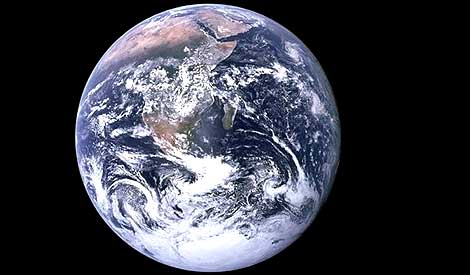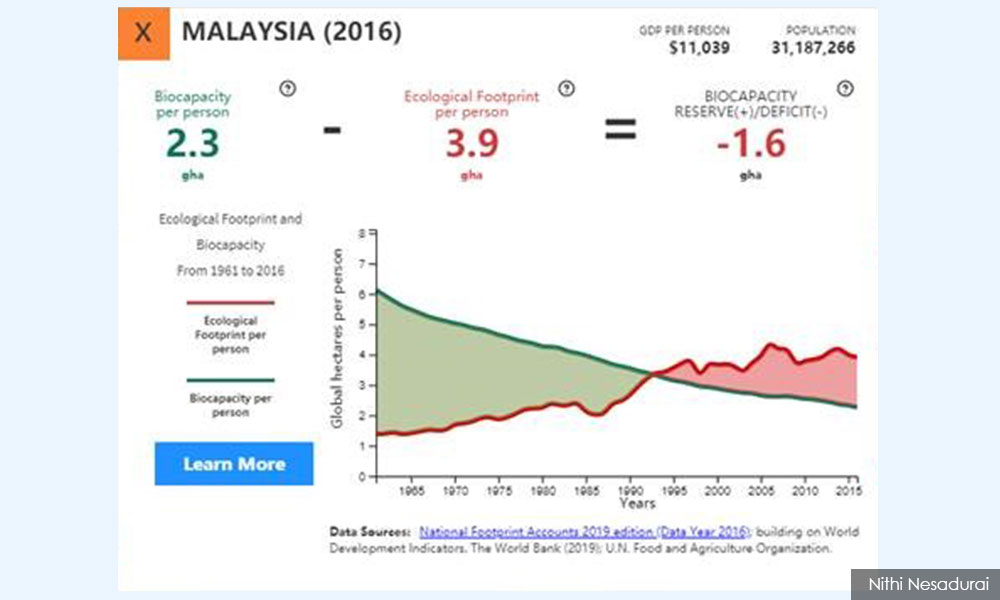LETTER | Delayed Earth Overshoot Day was by disaster, not by design
LETTER | Saturday, Aug 22 would have passed for most Malaysians as just another day. Yet, in terms of health and wellbeing of Earth – our home – it was a day of huge significance.
Aug 22 was Earth Overshoot Day (EOD); the date when humanity’s demand for ecological resources and services in a given year exceeds what our planet can regenerate in that year, according to Global Footprint Network (GFN).
In simple terms, if the planet’s capital was RM1,000 and nature provides a hypothetical interest on capital of RM100 on which to survive for 2020, Aug 22 was the date on which we had spent the budget.
While EOD has been advancing on a yearly basis to our collective detriment, Covid-19 induced lockdowns and air travel slowdown pushed back EOD by 24 days from July 29 in 2019.
This made it a Delayed EOD – by disaster and not by design – even as the global community continues to consume the resources of 1.6 planets. This means that Earth is in a continued state of deterioration with dangerous consequences.
In fact, the Planetary Emergency Plan 2.0 launched by the Club of Rome on EOD makes the case we are unequivocally in the midst of a planetary emergency.
Even so, this pandemic enabled pause presents an opportunity for policy and decision-makers in Malaysia, with wide stakeholder engagement, to reboot the economy and build a future in harmony with our finite planet.
Based on data from 2016 in the Living Planet Report, Malaysia’s biocapacity per person stood at 2.3 global hectares (gha) while our ecological footprint per person stood at 3.9 gha; the equivalent of consuming the resources of 2.2 planets.
With Malaysia’s biocapacity deficit estimated at 1.6 gha, i.e. we were using almost 70 percent more bio-capacity than what was available. Our country was last neutral in 1993 where bio-capacity equalled ecological footprint per person. (see chart below).
Planning and development decisions from now on should be made from a perspective of what impacts will they have on the ecological limits of one planet and how much carbon dioxide they will emit. The goal would be to seek growth which is equitable and inclusive while being ecologically sustainable and carbon-neutral.
The good news is that according to GFN, this transformation is not only technologically possible, it is also economically beneficial and our best chance for a prosperous future. The five key areas for action which define our long-term trends forcefully are:
Planet – How we help nature thrive
Cities – How we design and manage cities
Energy – How we power ourselves
Food – How we produce, distribute and consume food
Population – How many of us are there
One avenue which already exists for measures on accelerating action to be put into practice is the 12th Malaysia Plan, which is currently undergoing review. Another mechanism is to hold a series of workshops dedicated to these topics that will bring all stakeholders together to chart a direction for a more sustainable future for our country.
Malaysia has the potential to lead the world in changing our economic development pathway from one which is natural resource-and carbon-intensive to one which lives within the means of our planet and is carbon neutral while providing inclusive and sustainable growth.
At the individual level, the Environmental Protection Society Malaysia (EPSM) appeals that all of us take responsibility for lowering our own ecological footprint by raising our awareness. The first step would be to calculate our footprint.
We must seize the opportunity and be driven by design and not by disaster.
The writer is president, Environmental Protection Society Malaysia (EPSM).
The views expressed here are those of the author/contributor and do not necessarily represent the views of Malaysiakini.
RM12.50 / month
- Unlimited access to award-winning journalism
- Comment and share your opinions on all our articles
- Gift interesting stories to your friends
- Tax deductable

